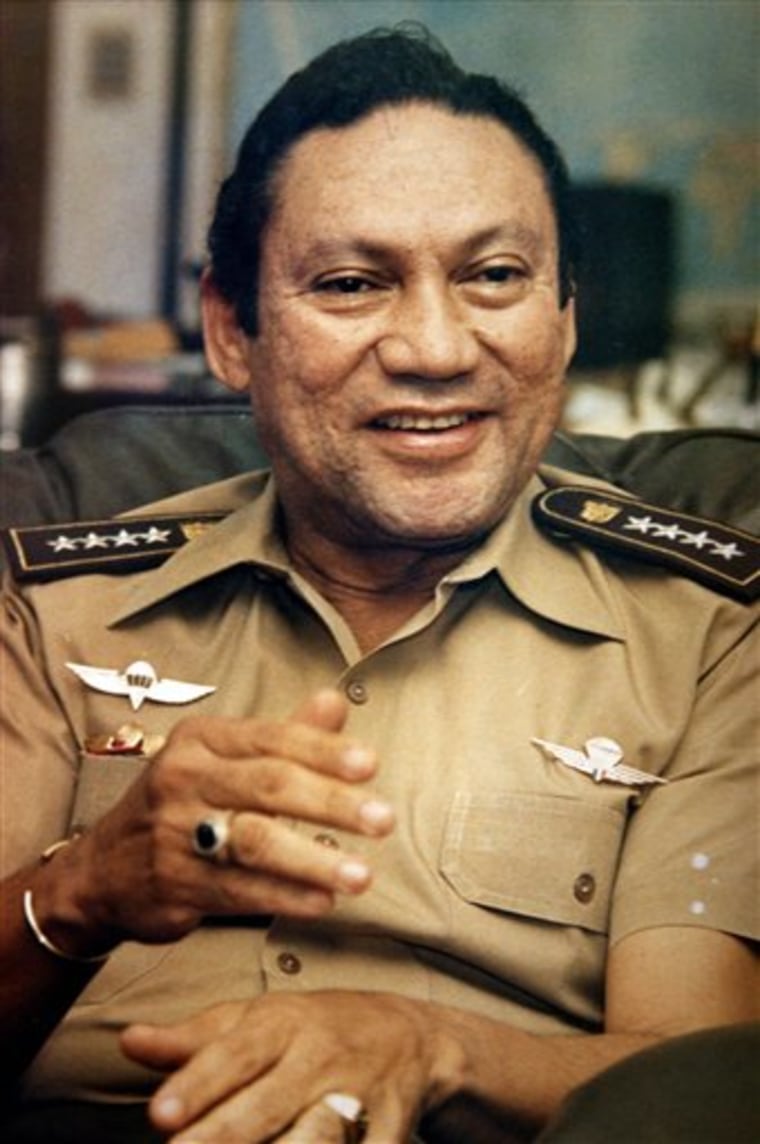Former Panamanian dictator Manuel Noriega on Wednesday failed again to persuade a federal judge to block France from extraditing him to face money-laundering charges.
U.S. District Judge Paul Huck said he agreed with another judge's rulings last year that Noriega's status as a prisoner of war was not an impediment to the French extradition request.
Huck also ruled that France had provided sufficient assurances that he would be treated in accordance with POW rules under the Geneva Conventions, even if the French do not plan to specifically label Noriega as a POW.
"What more could he ask for?" Huck said at a hearing. "He will get the benefits he has enjoyed here, as a prisoner of war here."
The ruling clears the way for Noriega's lawyers to appeal his extradition to the 11th U.S. Circuit Court of Appeals in Atlanta. U.S. lawyers say Noriega's extradition will not take place until the legal process is concluded.
"It is on hold," said Assistant U.S. Attorney Sean Cronin.
Noriega, 73, completed a U.S. prison sentence in September for a 1992 drug racketeering and had hoped to return to Panama. He has been in U.S. custody since early 1990, when he was captured after a U.S. military invasion of Panama designed to drive him from power because of his links to Colombian drug cartels.
10-year sentence possible
While in the U.S., Noriega was convicted in France of laundering more than $3 million in drug proceeds through French banks. But the French have said he will get a new trial if extradited and faces a possible 10-year prison sentence.
Despite their previous legal losses, Noriega attorneys Frank Rubino and Jonathan May asked Huck for a new review, focusing on what guarantees France should give on the POW issue. They said it wasn't enough for France to simply give such assurances in a secret diplomatic cable to the State Department, which makes the final decision on Noriega's extradition.
"I feel a lot less optimistic about what governments are going to do in the future without making a present commitment," May said. "We don't share the court's confidence."
Cronin, however, said France "will behave in the exact same way the United States has behaved in the past 15-plus years."
Noriega enjoys separate quarters at a prison near Miami, the right to wear his military uniform and insignia, access to a television and monitoring by international rights groups.
Senior U.S. District Judge William Hoeveler declared Noriega a prisoner of war after his drug conviction, but Hoeveler ruled last year that the POW status does not prevent his extradition.
Panama also wants him
Panama is also seeking Noriega's return. He was convicted in absentia there of embezzlement, corruption and murdering political opponents and sentenced to 60 years, but under Panamanian law he could get only a fraction of that time or house arrest.
May said the U.S. recognition of France's extradition request at the expense of Panama suggests a political motive stemming from the 1989 U.S. invasion.
"We believe this whole situation has been orchestrated by the United States because they don't want him to go to Panama," May said.
U.S. officials have repeatedly denied those claims, saying they are simply honoring a long-standing treaty with a close ally.
